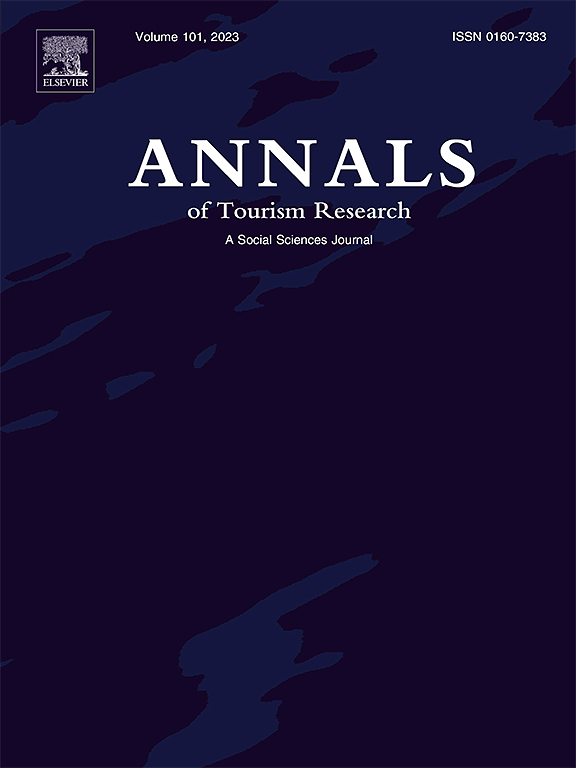住宿的数字拟人化:情境化与内容化的酒店女性化意象对游客满意度的影响
IF 7.8
1区 管理学
Q1 HOSPITALITY, LEISURE, SPORT & TOURISM
引用次数: 0
摘要
本文通过区分数字酒店意象对顾客满意度的语境要素和内容要素,建立了住宿拟人化理论。利用由高星级酒店的在线照片组成的数据集,我们进行了期望-确认数据挖掘,以分析期望和现场体验的情感图像。研究结果表明:1)住宿内容中女性化的预期意象和现场体验均能提高满意度;相反,男性气质会降低这种风险。(2)期望情境-女性化的迁就意象会降低满意度;然而,它加强了预期的数字内容的影响——女性化的住宿。3)住宿拟人化的不完全确认抑制了旅行者期望女性化意象对满意度的影响。4)与享乐主义旅游相比,情境化、内容化的数字拟人化更能提升功利主义游客的满意度。本文章由计算机程序翻译,如有差异,请以英文原文为准。
Digital anthropomorphism of accommodation: The influence of contextual and content-based femininity imagery of hotels on tourist satisfaction
This paper establishes the theory of accommodation anthropomorphism by differentiating the contextual and content-based elements of digital hotel imagery on customer satisfaction. Utilizing a dataset consisting of online photos from high-star hotels, we performed expectation-confirmation data mining to analyze the emotional imagery of expected and on-site experiences. The findings indicate that: 1) Both expected imagery and onsite experiences of femininity in accommodation content increases satisfaction; conversely, masculinity decreases it. 2) Expected context-femininity imagery of accommodation alone decreases satisfaction; however, it strengthens the impact of expected digital content-femininity of accommodation. 3) Incomplete confirmation of accommodation anthropomorphism suppresses the influence of travelers' expected femininity imagery on satisfaction. 4) Compared with hedonic tourism, contextual and content-based digital anthropomorphism enhances more utilitarian tourists' satisfaction.
求助全文
通过发布文献求助,成功后即可免费获取论文全文。
去求助
来源期刊

Annals of Tourism Research
Multiple-
CiteScore
19.10
自引率
9.10%
发文量
135
审稿时长
42 days
期刊介绍:
The Annals of Tourism Research is a scholarly journal that focuses on academic perspectives related to tourism. The journal defines tourism as a global economic activity that involves travel behavior, management and marketing activities of service industries catering to consumer demand, the effects of tourism on communities, and policy and governance at local, national, and international levels. While the journal aims to strike a balance between theory and application, its primary focus is on developing theoretical constructs that bridge the gap between business and the social and behavioral sciences. The disciplinary areas covered in the journal include, but are not limited to, service industries management, marketing science, consumer marketing, decision-making and behavior, business ethics, economics and forecasting, environment, geography and development, education and knowledge development, political science and administration, consumer-focused psychology, and anthropology and sociology.
 求助内容:
求助内容: 应助结果提醒方式:
应助结果提醒方式:


